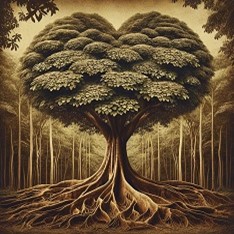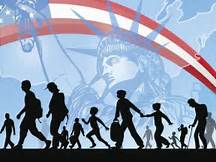
I know you’re busy with preparing for the holidays, visiting family and friends, cooking up grandma’s passed down recipes, spitting into those DNA test tubes and standing in lines (or trying to figure out where your package got delivered because it wasn’t at your door as expected). You’ve got to put this on your TO – DO before December 30th list, though, because it effects everyone interested in family history in the U.S.
I’ve received several emails from various organizations regarding the U.S. Citizenship & Immigration Service’s 500% proposed fee increase. That is outrageous on so many levels! My first complaint is that they just raised the fee 300% less than 3 years ago. The second complaint is that it TAKES FOREVER to get the documents and sometimes, you don’t get them at all and you don’t get your money back.
I don’t know about you, but I think paying $685.00, waiting up to a year and then getting an email with no individual to respond to stating the USCIS couldn’t find the information you sought is ridiculous.
Personally, I don’t need to request any documents as I was fortunate to obtain my maternal grandparent’s citizenship paperwork before the fees were increased. Was there startling revelations I uncovered from obtaining the documents? Well, it was for me but probably most people wouldn’t find it extraordinary. I got two awesome photos of my grandparents taken during the Depression when they had cut back so much to keep the house that they had NO spare change to have family photos taken. I have them from their marriage in the Teens, their growing family in the 1920’s and the war years of the 40’s and their retirement in the 50’s but zilch in the 30’s.
I also discovered that their long time next door neighbor, Mr. Bauer, served as a character witness. To me, he was a nice widower who let me pet his dog and gave me $1.00 instead of candy on Halloween. It also explained why another family would sometimes visit and grandma would break out the good china and silverware – they had once lived behind my family and had also served as a character witness. Mills is so right – Family/Friends, Associates and Neighbors hold the clue and show the interconnectedness of us all.
So, personally, the proposed increased doesn’t effect me but it certainly does professionally and as a citizen, for those who want to get a better insight into the immigrant experience.
Yeah, I know, you’re going to say they already made up their mind and they aren’t going to care that you have a differing opinion. My response is your opinion matters and I will hold it against my representatives if they fail to respond which they haven’t yet and I filled out my paperwork last week.
This is all you have to do:
1. If you want to read more about the proposal go to this website https://www.recordsnotrevenue.com/
2. If you are ready to make your views known – skip step 1 and go directly to this website –
https://www.regulations.gov/document?D=USCIS-2019-0010-0001
3. Don’t let all that political jargon exasperate you! Just click “Comment” on the right side of the screen at the top
↖
4. You don’t have to write a dissertation – just a few words will do.
5. I also emailed my Senators and Representative. If you don’t know how to email yours – click here to identify your Senators and Representative. To save time, you can do a Ctr C to copy what you write to the USCIS and enter the same by doing a Ctr P for your Senators and Representative.
Last week, I wrote about another assault on genealogy. Thank you for all your comments. Clearly, this is a time for all of us to make noise and express our opinion. I’m sure, like me, you want your descendants to one day discover you took a stand for the right reasons during these difficult times.
I promise it will take you less than 10 minutes to send the emails to those who will make the final decision. Don’t delay – do this TODAY!









